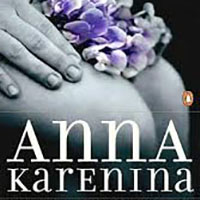
“Happy families are all alike; every unhappy family is unhappy in its own way.”
Beloved by many for its famous opening line, its tragic end at a Russian train station and the saga in between, Leo Tolstoy’s masterpiece “Anna Karenina” is considered one of the greatest novels ever written. Published in serial installments from 1873 to 1877, the tragedy of socialite Anna Karenina has been adapted into dozens of films and TV series.
Add to that list its treatment in the upcoming marathon reading event at Florida State University Oct. 15-16. The third annual marathon features hundreds of rotating volunteers at Strozier Library reading the novel nonstop, a task expected to take about 36 hours.
“It is such a compelling example of what a quality campus life offers,” said Margaret Wright-Cleveland, director of Florida State’s Office of Faculty Recognition, an adjunct professor in the Women’s Studies Program and organizer of the event.
The reading marathon kicks off at 10 a.m. Oct. 15 with Florida State students in a freshman writing class at the London Study Center reading via Skype, a new twist this year. Volunteers read in 15-minute increments in an area set up behind the turnstiles inside Strozier’s main entrance.
Members of the men’s basketball team will read at 10:30 a.m. and President Eric J. Barron is scheduled to read at 2 p.m. on Oct. 15.
“It’s a rich, complicated story, with beautiful language. But, it isn’t easy and it is long, about 150,000 more words than ‘Moby Dick,’” Wright-Cleveland said of “Anna Karenina.”
The first two marathon selections, “Moby Dick” and “Bleak House,” each took about 24 hours to read. This one will surely fill 36 hours, she said.
“‘Moby Dick’ is looking like a breeze.”
Wright-Cleveland chooses texts that are still culturally relevant, noting that another movie version of the Tolstoy classic, this one starring Keira Knightley and Jude Law, was released just last year.
Wright-Cleveland said the annual event is a proven success. Listeners who can’t stay for the entire oration often return to hear the ending.
“It reminds us of the importance of storytelling. It reminds us that stories are a community event,” she said.
More students, faculty and alumni are scheduled to read, but volunteers are still needed. The event is open to the public and community members are encouraged to visit Strozier to listen and read. Go to http://ofr.fsu.edu and click on the VolunteerSpot button to sign up to read.
It’s also fine to simply show up to the library to take a turn reading, particularly overnight when Wright-Cleveland may be there alone with the novel.




